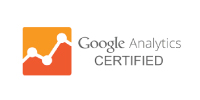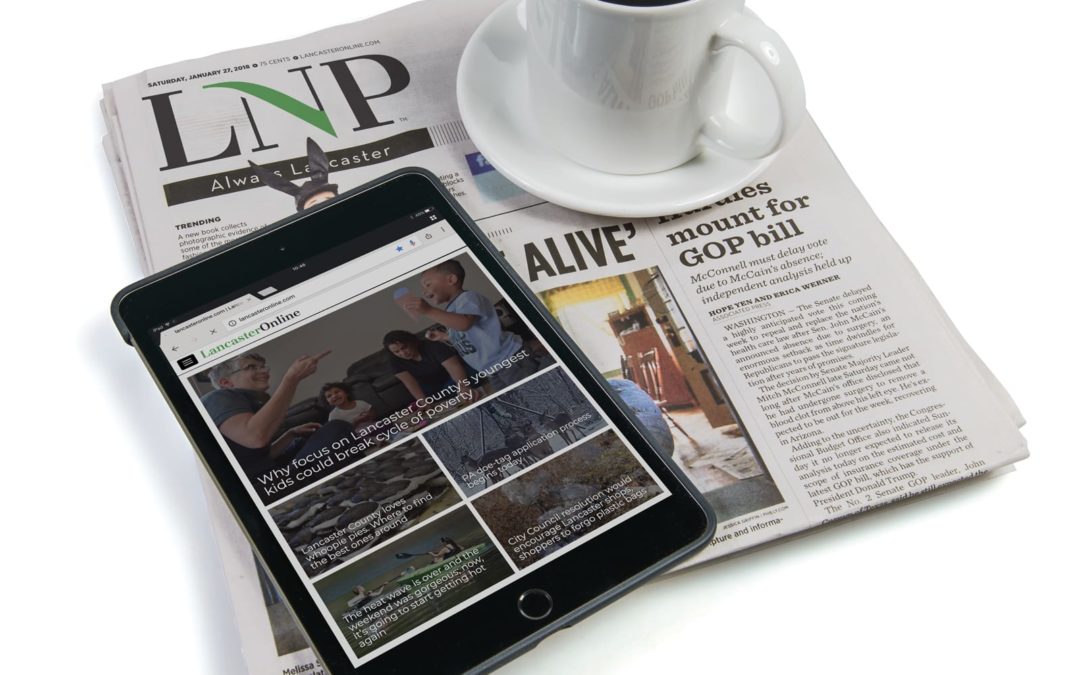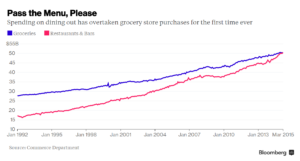No matter how big (or small) your ad budget is, you probably struggle with making the most of your marketing dollars. While outspending your competition is ideal, not every business has the resources to match competitors’ budgets.
What can you do to stretch your marketing dollars? The marketing experts at LNP Media Group have put together some strategies to maximize your advertising impact.
1. Narrow Your Target Audience
A good place to start is by spending some time researching your target market; if you’re talking to the wrong people, you’re wasting your time. To maximize the efficiency and effectiveness of your marketing plan, create a narrowly-defined profile of your ideal customers.
Think about things like:
- What age are they?
- Do they own a home?
- Where do they live?
- What special behaviors define them? Do they shop a lot? Watch movies? Mow lawns? Save money?
- What special needs unite them? Do they hate to waste time? Want great customer service? Are they picky eaters? Environmentally concerned?
A narrowly defined target market is essential for efficient marketing and media decisions. Try not to think of keeping a targeted profile as excluding anyone, but rather keeping your messaging focused on the people who will be most likely to respond.
2. Hone Your Message
It’s easy for companies to get caught up in talking about what they do, sell, offer, or provide. If you want to get customers to pay attention, however, you must stop telling them about your business and focus on helping your prospects:
- How does your product or service make life better? Safer? Healthier? More convenient? Will I save time? Will you cheer me up? These should be explained from the customer’s point of view.
- When talking to businesses, start by explaining how you can help them find leads, close sales, reduces operating expenses, save time or avoid unpleasant situations.
3. Create A Compelling Offer
Customers are inundated with advertising. One way to get more attention and to drive immediate action is to include a limited-time offer in your ads, such as a seasonal product, weekly sale, coupon, a discount code or gift:
- Any time you include a promotion or limited-time offer in your ads, you should also clearly note that the supply is limited or include an end date. There’s a reason why the terms “act now” and “while supplies last” have been over-used; perceived exclusivity raises the value of the product and motivates action.
- Creating new, limited-time offers is also a way to bring in new customers. For years, fast food restaurants have been relying on seasonal and limited-time menu items to draw in a broader audience.
- You can also use offers to drive business during slow periods, offering deals on slow days of the week or during slow seasons.
4. Male An Impact With Ad Flights
The way you schedule your media can help you increase your impact among your best prospects. An ad flight is grouping ad placements over a short period of time, alternating with periods without advertising. Flights can work weekly, monthly or seasonally:
- For example, a restaurant might make a big splash by choosing to advertise heavily for two weeks, and then go dormant for two weeks. A garden center might spend the majority of their budget in the spring, halting ads when the peak planting period ends.
- Buying ads in flights may even enable you to match or exceed competitors’ ads for short periods while not exceeding their budget.
- The other advantage of using flights is that you may be able to get preferential pricing.
5. Super Size It
Next, just as running ads in flights may create more impact, running fewer ads at larger sizes is another way to increase your brand impact:
- Bigger units are more noticeable. They stand out from the ad clutter. Larger placements also allow you to include more benefits, and while frequency helps build awareness, it is important to ensure that each ad has impact and stopping power.
- Not sure if your business will get more impact from lots of smaller ads or fewer larger ads? Do a test. Run a series of smaller ads and a series of larger ads, then measure results and see which strategy garners the most attention for your business.
6. Make The Most Of Moments
Today, many of your best sales prospects have mobile phones they use to find products, stores, restaurants and more, and you can reach them as they perform these searches. Google calls this Marketing in the Moment and recommends using paid search advertising to reach customers who have one of these needs:
- “I want to know”: They are searching for information – like how to solve some problem.
- “I want to go”: They need directions and may be doing a “near me” search.
- “I want to do”: “How do I fix my dryer?”
- “I want to buy”: They’re seeking a product and they’re ready to buy.
Many of these searches create marketing opportunities for your business; advertising on search engines enables you to capitalize:
- The key is to ensure that your advertising targets the right search terms and provides a highly relevant offer.
- Customers seeking to fix their dryer, for example, may want help and parts. Can you provide that? If so, you may win a new customer. Customers searching “lunch near me,” may be pulled through the door by hearing your specials.
Another key to “marketing in the moment” is to ensure that your place of business appears on search engines for local searches. So when a hungry customer Googles “restaurants Lancaster”, you want to be on the list. To make this happen, you need to add your names and address into local directory listings like LancasterOnline, Yelp, and others.
7. Repeat Yourself
No matter what medium you choose for your marketing, repetition is key to success:
- While studies vary widely on the most effective level of repetition, most marketers agree that it’s wise to try for six to nine impressions.
- Retargeting is one of the most powerful methods to achieve repetition in digital marketing. Retargeting allows you to show ads to customers who have visited your site previously, by tracking their website activity. This use of repetition builds brand awareness with your best prospects.
8. Combine Media To Get Better Reach And Frequency
Your customers are interacting with a variety of online and offline media, so your advertising plan should be built around intercepting them in a variety of places:
- For example, newspaper advertising can reach consumers with larger ads in a highly engaged environment. A consistent schedule of newspaper advertising creates a familiarity that leads to awareness and trust of your brand.
- Adding a digital advertising component to your plan can increase both the reach and frequency of your advertising. People interact with digital ads differently than how they do with print, however. In digital, the ads are smaller and the average attention span is shorter.
Choose LancasterOnline as a supplement to your print advertising campaign or run ads on Facebook or Google. That way, sales prospects see your brand with their morning coffee, when they check the weather online over lunch, and when they search online. The result will be an increase in brand awareness that may result in sales leads and store traffic.
9. Become A Social Marketer
Social media platforms offer targeted, engaged online audiences. It’s a great type of media for most businesses and if used wisely it can become one of the most powerful tools in your marketing arsenal:
- Social media platforms such as Twitter, Facebook, YouTube, Snapchat, and Instagram are excellent marketing tools for businesses, but effective social media marketing requires time, skill, and financial commitment to be successful.
- Users determine what they see and which unpaid messages come to them. While communicating with friends is fun and easy, most of these social media platforms also make it very difficult for businesses to bubble up on newsfeeds without a paid component.
- Social media marketing doesn’t need to be expensive. Our marketing experts recommend a mix of organic (unpaid) content combined with paid messages to targeted audiences. Since social media platforms regularly change rules, formats and advertising options, it’s also important to keep up to date on changes.
10. Never Stop Testing
No matter how much you strategize and estimate, testing your marketing is the only way to find out how effective it will be:
- Testing one idea or approach against another will help you understand how each decision affects your businesses’ success; compare results to find out which methods are most effective for your business.
- Don’t rely on reports limited to clicks and impressions; you need to determine which digital ads drove prospects to action. Some ads, such as ones made for brand recognition, will not have the immediate tangible impact as others but will play an important role in growing your business.
- Be patient. Testing just one campaign on a particular platform isn’t enough to provide accurate insight into whether a given tactic is working. Instead, experiment with ads over different time periods, targeting slightly different audiences.
Once you’ve got enough data to start making decisions, you’ll become more confident about what works and what doesn’t drive business. Monitoring relevant metrics across your ads is one of the most effective ways to make the kind of smart decisions that increase impact and create efficiencies. We can help! Contact us for effective, efficient marketing strategies tailor-made for your business.



















